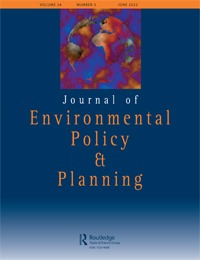Materialities, discourses and governance: scallop culture in Sechura, Peru
| Year | : | 2022 |
|---|---|---|
| Author/s | : | Lotta Clara Kluger, Achim Schlüter, Maria Garteizgogeascoa, Gerardo Damonte |
| Area/s | : | Natural resources, extractive industries and social conflict |
Lotta Clara Kluger, Achim Schlüter, Maria Garteizgogeascoa & Gerardo Damonte (2022) Materialities, discourses and governance: scallop culture in Sechura, Peru. Journal of Environmental Policy & Planning, 24(3), 309-324, DOI: 10.1080/1523908X.2022.2047620
This paper looks at the institutional emergence, particularly space rights, within the culture of the Peruvian bay scallop (Argopecten purpuratus) in Sechura Bay. The institutional system developed within a period of 20 years from an open-access, gold rush scenario to a rather structured, formal activity – however, still relies on a lot of informality. This work uses the matrix provided by the material dependency framework presented in this special issue distinguishing between nature, human and hybrid-made materialities that influence the emergence of institutional structures, on the one axis and path-, inter- and goal dependencies on the other axis. In this work, researchers argue that existing natural (high environmental risks associated with scallop culture in this setting), hybrid (need to process quickly) and human-made (export-oriented production) materialities have shaped different path dependencies in institutional development in favour of larger firms who gradually took over the control of scallop production from small-scale producers, who in turn became piece wage labourers. Yet, the realities of both actors are necessarily intertwined, with informal loop holes being intentionally left open, shaping different institutional solutions over time. Applying the material dependency framework shows how materialities and goal dependencies are intertwined in this particular case of scallop bottom aquaculture.






